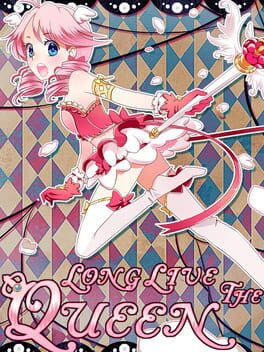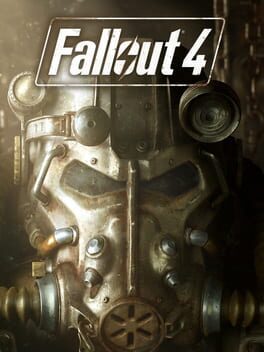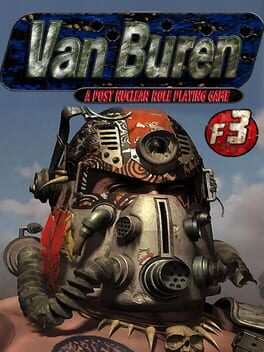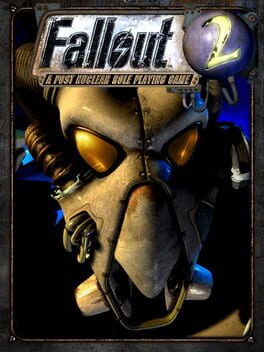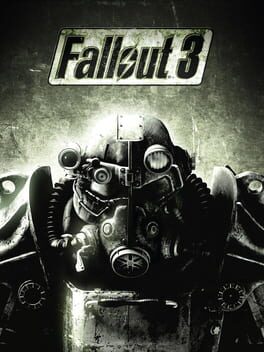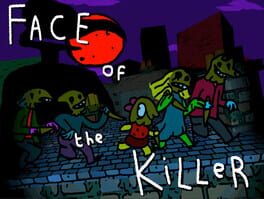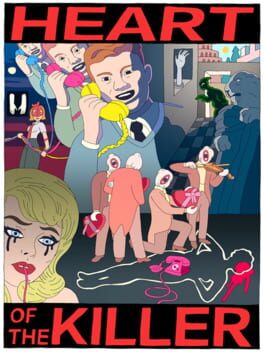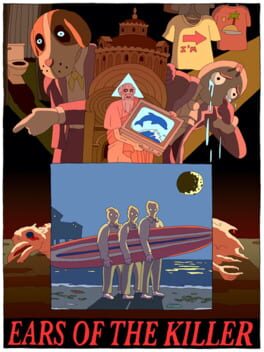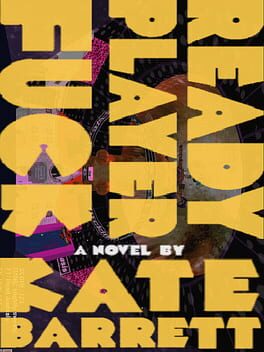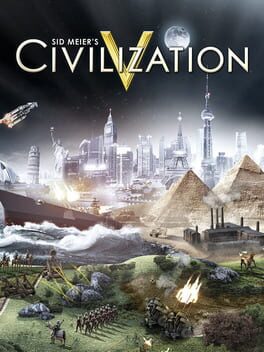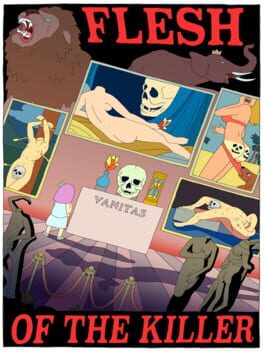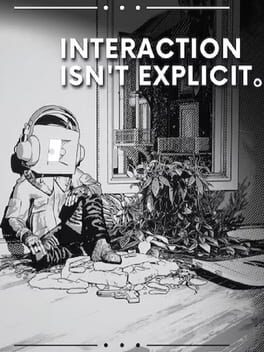alivedovedoeat
2012
A lot more mechanically shallow than other games in its genre, but benefits from this in that it can viewed holistically more easily than something like Tokimeki or Princess Maker. Representative of a more reflexive era of VN pastiche, one not exactly witty but so much less maudlin than what was to come.
2015
I've been keeping up with the tabletop game Wolves Upon the Coast lately, part of the current glut of fantasy heartbreakers but distinguished by some mechanical novelty in service to its focus on sacrifice in the pursuit of power. Where most games in this genre award character advancement based on the acquisition of wealth, Wolves grants the equivalent of a level each time a player boasts that she'll accomplish something difficult, dangerous, and impractical. There's a fanzine which characterizes the effect of this on play as dividing adventures into two types: one in the pursuit of glory and one in the pursuit of wealth with which to finance the former. It's compared to potlatch: adventure for the sake of experience is a wealth-destroying process.
Fallout 4 wasn't designed with this dynamic in mind: if it were, in fact, about spending hours gathering up resources and recruiting support for a big, symbolic attack on a raider camp that does more harm than good but advances your personal prestige, it might be a good videogame. For the first ten to fifteen hours, however, the thin trickle of good ammunition you loot off corpses doesn't really compensate you for the amount you've expended. Early adventuring is typically a net loss of resources unless you judiciously limit yourself to the absolutely miserable pipe weapons.
This is the game's way, I think, of pushing you into its other systems, its scavenging, crafting, and base-building. In my twenty-ish hours with the game, the only quests I really engaged with were for the Minutemen, which function as a tutorial for the settlements accompanied by a man who sounds vaguely confused and embarrassed by every line he delivers. Construction in the game is limited, somehow both counterintuitive and excessively simple, and typically represents a process that could be automated, but which instead demands manual engagement so as to keep it in the forefront of the player's mind: God forbid someone put down a sleeping bag without your permission.
I'm sure it's quite possible to play without ever engaging with the settlements, but if set up properly they provide you with too steady a stream of wealth to pass up. Getting to such a point involves a certain amount of skill point investment, as do the crafting skills which allow you to keep up with the game's damage scaling. There's no builds in Fallout 4, as one doesn't so much choose to focus on a certain approach as on getting one aspect of the singular, optimal end result, a character with good equipment and boosts to damage output, before the others. It's an utterly maximalist experience in which every mechanic is an intended part of the gameplay loop.
Like eating chocolate alongside potato chips, the alternation of base-building and dungeon-clearing works well to keep the player in its thrall: the inadequacy of each system fosters a craving for the other. In the absence of self-control, what broke this cycle for me was finally deciding to go to Diamond City, where about fifteen minutes of dialogue filled me with enough disgust to quit.
In light of the game being a single-player gacha, criticism of its actual content feels petty, but a few points stick out. Why are half the songs on the radio recycled from Fallout 3? Why does the prewar sequence present the period in exactly the same terms as the setting's propaganda?
Fallout 4 wasn't designed with this dynamic in mind: if it were, in fact, about spending hours gathering up resources and recruiting support for a big, symbolic attack on a raider camp that does more harm than good but advances your personal prestige, it might be a good videogame. For the first ten to fifteen hours, however, the thin trickle of good ammunition you loot off corpses doesn't really compensate you for the amount you've expended. Early adventuring is typically a net loss of resources unless you judiciously limit yourself to the absolutely miserable pipe weapons.
This is the game's way, I think, of pushing you into its other systems, its scavenging, crafting, and base-building. In my twenty-ish hours with the game, the only quests I really engaged with were for the Minutemen, which function as a tutorial for the settlements accompanied by a man who sounds vaguely confused and embarrassed by every line he delivers. Construction in the game is limited, somehow both counterintuitive and excessively simple, and typically represents a process that could be automated, but which instead demands manual engagement so as to keep it in the forefront of the player's mind: God forbid someone put down a sleeping bag without your permission.
I'm sure it's quite possible to play without ever engaging with the settlements, but if set up properly they provide you with too steady a stream of wealth to pass up. Getting to such a point involves a certain amount of skill point investment, as do the crafting skills which allow you to keep up with the game's damage scaling. There's no builds in Fallout 4, as one doesn't so much choose to focus on a certain approach as on getting one aspect of the singular, optimal end result, a character with good equipment and boosts to damage output, before the others. It's an utterly maximalist experience in which every mechanic is an intended part of the gameplay loop.
Like eating chocolate alongside potato chips, the alternation of base-building and dungeon-clearing works well to keep the player in its thrall: the inadequacy of each system fosters a craving for the other. In the absence of self-control, what broke this cycle for me was finally deciding to go to Diamond City, where about fifteen minutes of dialogue filled me with enough disgust to quit.
In light of the game being a single-player gacha, criticism of its actual content feels petty, but a few points stick out. Why are half the songs on the radio recycled from Fallout 3? Why does the prewar sequence present the period in exactly the same terms as the setting's propaganda?
TBD
1998
The last time I played it, around six years ago, the representative moment in Fallout 2 seemed to be killing the Hubologists as part of the Shi questline: the tiny, underleveled Tom Cruise sprite exploding into gore as his attending hooded cultists float taunts about how they'll kill you in the name of L. Ron Hubbard. The outrage-seeking, the easy satire, the inarticulate disaffection for trends in contemporary social life, and the childlike joy in explicit violence all made the game seem not only like a perfect relic of the attitudes of the turn of the millennium, but of the milieu of American game development at the time. It's a moment at which the line between professional game development and say, flash games about torturing George Bush, is shown to have been terribly thin.
On the last run, what stood out was the converse sense in which this is the progenitor of the post-millenial open-world game, remarkable in just how fully-formed the genre already is. The tight structuring of the first game is almost fully abandoned alongside the time limit: the only thing really keeping the player from the end sequence at any given time is the fact that it's on the opposite end of the map from the starting position, and the accompanying confidence that the player will want to consume all the content with which she's presented along the way. The notion of all this being in service to a main quest isn't totally dispensed with the way it is in the fully realized form of the genre, but it's treated as something of a running joke.
Jokes are really the stock and trade of Fallout 2, and range from Monkey Island-adjacent clownishness at best to something like an adult animated comedy at worst. A few stray lines genuinely worked for me this time: the option to call a woman homophobic for rejecting you and a dialogue option reminiscent of Disco Elysium which only pops up if you've got meth in your inventory to offer a starving child.
The character of combat encounters in this game is really determined by the way armor and health progress more steadily than damage output, which plateaus around the middle of the game unless one uses perks to squeeze out an extra attack or two per round. The high-lethality casino shootouts which characterized the midgame for me were enormously fun in their demands that the player think carefully about range, action economy, and cover. The early game's typified by low-stakes slapfights with rats, and the later game is more of a flat DPS race between bullet sponges, but that sweet spot makes the combat engine seem like it has genuine potential as a TRPG.
Playing this game in a four-day stupor made it easier to see that the game gets worse as it goes on, that the relative focus and sense of tone informing the early areas falls apart around NCR and San Francisco. Navarro and the Oil Rig, in particular, while themed impeccably and nicely built up to over the course of the game, are remarkably empty as dungeons. This time, as with every other time I've played the game, I spoke to the scientist who releases the virus before talking to the one in the reactor room, because the former is placed before the latter, and had to spend twenty minutes looking for a bomb so that I could still trigger the escape sequence.
The totally disparate nature of the world it creates, made up of stereotypes and references and the conflicting aesthetic and thematic preferences of its authors, retains it appeal for me. It's like a constellation of what it meant to be a socially awkward man in the late-90s, like a Rifts campaign frozen in amber. It's commonplace to present New Vegas as the more authentic sequel to Fallout 2 than Bethesda's attempt, but each game's making an effort to pare down an incredibly eclectic product into something like a brand.
On the last run, what stood out was the converse sense in which this is the progenitor of the post-millenial open-world game, remarkable in just how fully-formed the genre already is. The tight structuring of the first game is almost fully abandoned alongside the time limit: the only thing really keeping the player from the end sequence at any given time is the fact that it's on the opposite end of the map from the starting position, and the accompanying confidence that the player will want to consume all the content with which she's presented along the way. The notion of all this being in service to a main quest isn't totally dispensed with the way it is in the fully realized form of the genre, but it's treated as something of a running joke.
Jokes are really the stock and trade of Fallout 2, and range from Monkey Island-adjacent clownishness at best to something like an adult animated comedy at worst. A few stray lines genuinely worked for me this time: the option to call a woman homophobic for rejecting you and a dialogue option reminiscent of Disco Elysium which only pops up if you've got meth in your inventory to offer a starving child.
The character of combat encounters in this game is really determined by the way armor and health progress more steadily than damage output, which plateaus around the middle of the game unless one uses perks to squeeze out an extra attack or two per round. The high-lethality casino shootouts which characterized the midgame for me were enormously fun in their demands that the player think carefully about range, action economy, and cover. The early game's typified by low-stakes slapfights with rats, and the later game is more of a flat DPS race between bullet sponges, but that sweet spot makes the combat engine seem like it has genuine potential as a TRPG.
Playing this game in a four-day stupor made it easier to see that the game gets worse as it goes on, that the relative focus and sense of tone informing the early areas falls apart around NCR and San Francisco. Navarro and the Oil Rig, in particular, while themed impeccably and nicely built up to over the course of the game, are remarkably empty as dungeons. This time, as with every other time I've played the game, I spoke to the scientist who releases the virus before talking to the one in the reactor room, because the former is placed before the latter, and had to spend twenty minutes looking for a bomb so that I could still trigger the escape sequence.
The totally disparate nature of the world it creates, made up of stereotypes and references and the conflicting aesthetic and thematic preferences of its authors, retains it appeal for me. It's like a constellation of what it meant to be a socially awkward man in the late-90s, like a Rifts campaign frozen in amber. It's commonplace to present New Vegas as the more authentic sequel to Fallout 2 than Bethesda's attempt, but each game's making an effort to pare down an incredibly eclectic product into something like a brand.
1997
There's a version of this game that exists between its admirers, one with too solid a body of discourse built up around it to be called imaginary. This Fallout is the centerpiece of a secular religion of CRPG design, attended by Deus Ex and Planescape Torment, though perhaps finally consigned to the status of Old Testament anticipation by Disco Elysium. Hbomberguy is this faith's high priest.
I'm fond of the Fallout of conversation, in which the skills are consistently useful, there are multiple, organic solutions to problems and the writing is thoughtful and nuanced. The kind of guy whose praise perpetuates belief in this game is often the least racist kind of PC gamer. I'm also fond, however, of the playable piece of software released in 1997 bearing the same name, and feel its merits should be articulated as well.
The structure of Fallout's world is less reminiscent of anything else called an RPG than it is of the evidence-gathering phase of a Phoenix Wright case. There's a manageable number of locations presented through a menu, and in each of them one pokes and prods around, with novel bits of optional content with little long-term bearing but which serve as their own reward, until something moves the world state forward. Fallout's chief innovation wasn't so much opening up the CRPG as subjecting it to the same rigorous structure as the adventure game. While there are filler enemies and random encounters, each of the game's major combats provides the player with the tools necessary to manage the next: Vault 15's SMG, for example, allows the player to deal with the Khans, whose armor makes the upcoming chain of large group firefights survivable.
That progression is driven by new gear and information rather than leveling keeps any of the game's areas from feeling extraneous. Nothing in Fallout ever overstays its welcome, which is enormously beneficial: ideas and characters which would be insufferable in a game a few hours longer are instead presented straightforwardly and immediately moved on from. It's this brevity, and the recognition that a thinly-sketched character is almost always preferable to an overwrought one, that Fallout inherits from tabletop, rather than anything like freedom of choice. It's perhaps the best example of pacing in a western CRPG.
Aside from a few points at which the player's given multiple, equidistant leads to follow up on at once, the progression is incredibly taut and, because its only gating mechanisms are information and ability, feels more essential and less arbitrary than equivalents in the genre. Most of the choices of approach are back-loaded into the last two areas of the game, where the character skills which have been largely useless for the previous two-thirds of the game now function as keys. That these areas can be so easily circumvented by simply wearing a disguise undercuts their significance, but ultimately a high Speech or Science or Big Guns is treated like an item in an adventure game. This is made possible by and supports Fallout's limited scale and general restraint: it's a game where a skill or a tool used two or three times is worth going out of one's way for.
It's probably the first Western RPG to have really good art direction, and I'd suggest resisting the urge to play the game at a modern resolution in order to really appreciate the spritework. The voice work is shockingly solid, and with the exception of some of the better New Vegas characters I don't think the series has ever quite matched the talking heads in this game for memorability. It is so sad to watch the cinematics in this first entry present what would become the series aesthetic as succinctly and stylishly as they do, and to know this would be milked dry in later years as these games got more and more saturated with 50s-dystopian broad satire.
I'm fond of the Fallout of conversation, in which the skills are consistently useful, there are multiple, organic solutions to problems and the writing is thoughtful and nuanced. The kind of guy whose praise perpetuates belief in this game is often the least racist kind of PC gamer. I'm also fond, however, of the playable piece of software released in 1997 bearing the same name, and feel its merits should be articulated as well.
The structure of Fallout's world is less reminiscent of anything else called an RPG than it is of the evidence-gathering phase of a Phoenix Wright case. There's a manageable number of locations presented through a menu, and in each of them one pokes and prods around, with novel bits of optional content with little long-term bearing but which serve as their own reward, until something moves the world state forward. Fallout's chief innovation wasn't so much opening up the CRPG as subjecting it to the same rigorous structure as the adventure game. While there are filler enemies and random encounters, each of the game's major combats provides the player with the tools necessary to manage the next: Vault 15's SMG, for example, allows the player to deal with the Khans, whose armor makes the upcoming chain of large group firefights survivable.
That progression is driven by new gear and information rather than leveling keeps any of the game's areas from feeling extraneous. Nothing in Fallout ever overstays its welcome, which is enormously beneficial: ideas and characters which would be insufferable in a game a few hours longer are instead presented straightforwardly and immediately moved on from. It's this brevity, and the recognition that a thinly-sketched character is almost always preferable to an overwrought one, that Fallout inherits from tabletop, rather than anything like freedom of choice. It's perhaps the best example of pacing in a western CRPG.
Aside from a few points at which the player's given multiple, equidistant leads to follow up on at once, the progression is incredibly taut and, because its only gating mechanisms are information and ability, feels more essential and less arbitrary than equivalents in the genre. Most of the choices of approach are back-loaded into the last two areas of the game, where the character skills which have been largely useless for the previous two-thirds of the game now function as keys. That these areas can be so easily circumvented by simply wearing a disguise undercuts their significance, but ultimately a high Speech or Science or Big Guns is treated like an item in an adventure game. This is made possible by and supports Fallout's limited scale and general restraint: it's a game where a skill or a tool used two or three times is worth going out of one's way for.
It's probably the first Western RPG to have really good art direction, and I'd suggest resisting the urge to play the game at a modern resolution in order to really appreciate the spritework. The voice work is shockingly solid, and with the exception of some of the better New Vegas characters I don't think the series has ever quite matched the talking heads in this game for memorability. It is so sad to watch the cinematics in this first entry present what would become the series aesthetic as succinctly and stylishly as they do, and to know this would be milked dry in later years as these games got more and more saturated with 50s-dystopian broad satire.
2008
Played this on stream with a low-end laptop for several hours and now whenever I hear one of the 00s pop songs from its soundtrack playing on the radio at a drug store I gradually put it together that this is the standard speed version of the song I'd heard playing at x.67 speed during this experience. I was briefly thrilled to learn that this is first and foremost a yuri dating sim where you court other volleyball players before realizing that there are no interactions between the characters beyond the basic gift-giving minigame.
2024
Some of the best cartoonistry in the series thus far: really strong use of short animations throughout. Builds a range in its cinematography through the shifts in perspective and characters controlled that feels almost sophisticated. It's close to the scope of Ears without its pacing issues, and draws on the material the rest of the series introduced without reducing it to a brand. Dogs was, in fact, a strong enough gag to structure the whole game around.
2023
Led to a conversation with a friend about the Rainforest Cafe, with which I was totally unfamiliar, almost as alienating as the game itself. The hotel in this one's a very well-realized little nightmare: variations on a recurring setting are used to really good effect in it. No zine joke in this series will top the one about pronunciation, but the Kickstarter dig got me. This is the entry in which it came together for me what the series is doing with this broad satire of patterns in modern consumption, using it to achieve that sophomoric brush with politics that exploitation cinema really needed to function. Loved the hometown section.
2009
I would bet it all to smoke weed with Fang and Vanille in their dimly-lit bedroom full of empty takeout bags: I have never seen a burnout codependent lesbian couple depicted this plausibly. XIII is probably the first Final Fantasy to make intra-party dynamics a narrative priority, and the most successful in this. Good dub casting supports this, and it's the series title from which I came away most fond of the characters. Pretty much the gold standard of seventh generation console visuals, and the best version of the ATB system.
2022
Something about the length, the level variety and the character-select makes this game feel almost straight: it's got something more like the structure of survival horror game. It's not terribly distinct from the series as a whole, and kind of blends in with its established aesthetics and art-grifter satire, but there's some really good individual gags in here: the Corporate Memphis cult website redesign and the new wave jokes really stand out.
2017
If web publishing hadn't become as commercially impracticable as print at some point about a decade ago, they would've eventually rebooted MAD Magazine as site and had something like this as its modernized form of the old movie parody comic format. Has a single brilliant moment in putting Omoide wa Okkusenman in the area where you fight Godzilla as a Transformer.
2021
This review contains spoilers
My interactions with your mother are quite explicit.
Feels out of time: not just like a YouTube essay but like YouTube essays a decade ago, as if it were still shaking off the baby feathers of Mr. Plinkett and the Angry Video Game Nerd. Fundamentally wrongheaded assessment of design born of a desperate love of dichotomies. Thought it might be a joke when he mentioned Shadow of the Colossus. Earns half a star for bashing Final Fantasy XVI.
Feels out of time: not just like a YouTube essay but like YouTube essays a decade ago, as if it were still shaking off the baby feathers of Mr. Plinkett and the Angry Video Game Nerd. Fundamentally wrongheaded assessment of design born of a desperate love of dichotomies. Thought it might be a joke when he mentioned Shadow of the Colossus. Earns half a star for bashing Final Fantasy XVI.
